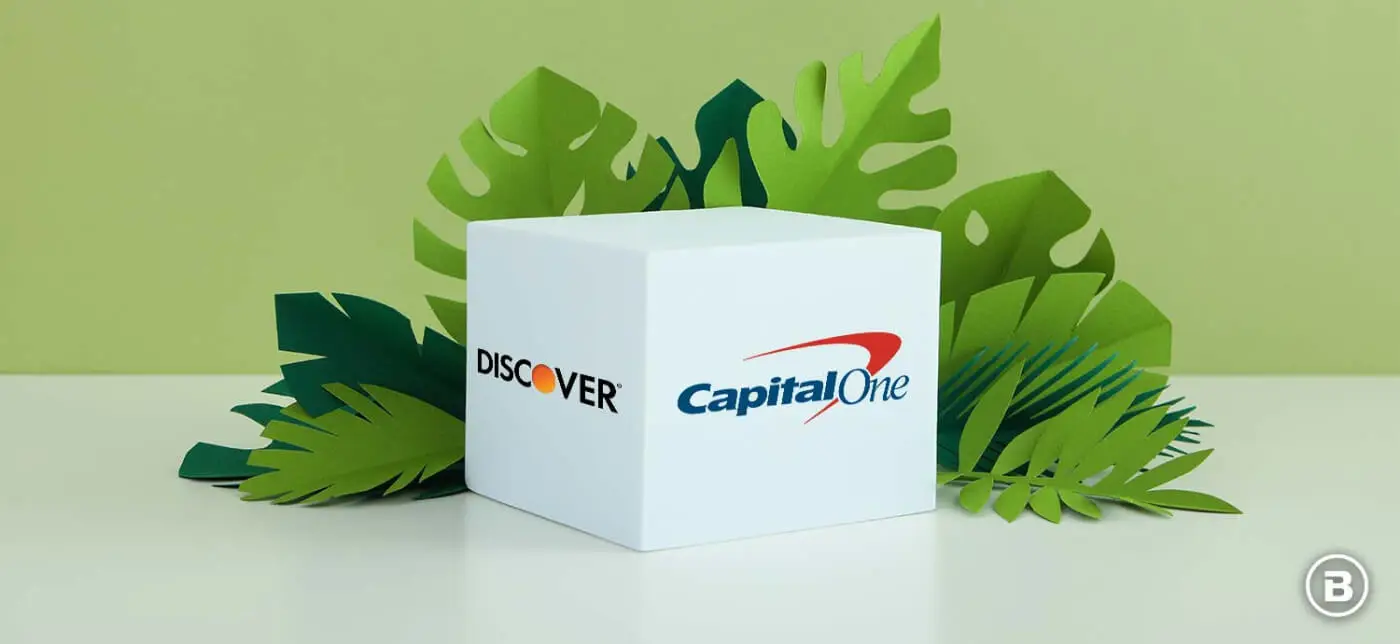July 17, 2025
July 15, 2025
Close
Subscribe to the BIGcast Network
Keep pace with the rapidly evolving fintech industry by subscribing to the BIGcast Network. Get weekly insights from industry leaders John Best and Glen Sarvady, delivered straight to your preferred podcast platform. Join our community and stay informed about the latest trends shaping the credit union industry. Subscribe today and ensure you’re always ahead of the curve.

The Capital One/Discover Deal- A Test of Typical Battle Lines (and a Credit Union Angle?)
In a sector that’s seen no shortage of fascinating recent deals (PSCU/Co-Op, Fiserv/First Data, the aborted Visa/Plaid combination, the “never mind” FIS/Worldpay merger), this one may be the most fascinating yet.
On an otherwise quiet President’s Day, Capital One shocked the banking world by announcing its planned $35 billion acquisition of Discover Financial Services. The twist adding significant intrigue is that Capital One is essentially making two acquisitions- a leading credit card brand/loan portfolio, and a credit/debit card processing network. Different strategic dynamics and potential hurdles apply to each. Let’s consider them separately, and also float some possible resulting credit union opportunities.
Most media coverage has focused on the players’ roles as credit card issuers, which is the aspect likely to invite textbook antitrust scrutiny. Today Capital One and Discover rank #4 and #6 , respectively, among card issuers; combined they would vault to the top spot based on outstanding card balances. The new entity would be #3 in terms of transaction volume, behind Chase and American Express.
This difference highlights a key characteristic of Cap One and Discover cardholders- both tend to carry higher balances relative to overall spending. This is probably because each company engages heavily with mass market and/or subprime consumers. Senator Elizabeth Warren quickly and predictably declared her opposition to the deal, citing the loss of competition. Interestingly, in an NPR interview Raj Date, former Deputy Director of the CFPB, predicted that consumers were unlikely to notice any change.
Now for the interesting part- in Discover, Capital One is also acquiring a card processing network. This is the aspect Capital One emphasized in its investor call explaining the deal- perhaps in part because they realize it’s less likely to draw antitrust pushback.
Discover ranks a distant fourth as a card processing network, behind Visa, Mastercard and American Express. It would remain #4 after the deal, but would close the gap and become a more credible threat to the Big Two. Capital One currently works with both Visa and MC, but Mastercard has more volume at risk- a vulnerability made clear by stock price movements the day after the announcement.
Discover also operates a debit card network (Pulse), and Cap One indicated it will immediately migrate all of its debit volume- currently on Mastercard- upon deal close. They were far less definitive regarding credit card volumes, setting a goal of moving 25 million cardholders (slightly over half of Cap One’s base) by 2027. Capital One CEO Richard Fairbank acknowledged a need to first address Discover’s merchant acceptance gap outside the US, plus what he deemed a perceived acceptance gap within US borders.
On the investor call Fairbank pointed out that card networks are “rare assets” and extremely hard to establish. In this regard the deal could be viewed as pro-competitive, and a market-driven solution to what Senator Dick Durbin aims to accomplish with the Credit Card Competition Act (CCCA). To date, Sen. Durbin has been oddly quiet about this acquisition.
This brings us to credit unions, which often feel outgunned in the credit card space by the major players’ massive promotional budgets. The deal has already drawn attention to research showing that large FIs tend to charge higher credit card interest rates than small ones. Term changes and other moves by Cap One/Discover, or even publicity about the merger, could also serve to put cardholders in play. Assuming the CCCA battles continue- a safe bet- the economics behind rewards programs stand to be upended as well. At minimum they’ll be brought front and center in cardholders’ minds. These factors add up to an uncommon opportunity for CUs to reappraise their role in the credit card landscape.
In that same NPR interview, Raj Date called approval of the Capital One/Discover merger “a coin toss.” Expect to hear much more on this issue in the coming months- in a best case scenario the deal won’t close until year-end 2024 or early 2025. At this point failure to proceed may carry even wilder ramifications.
